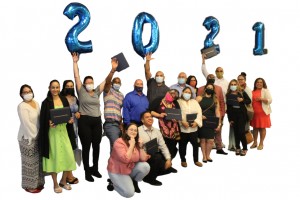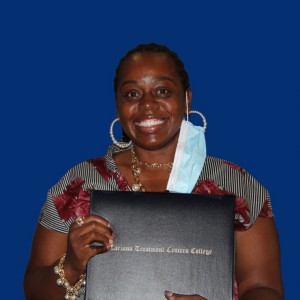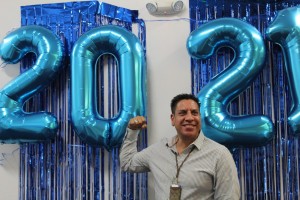Tarzana, California Sep 22, 2021 (Issuewire.com) - Tarzana Treatment Centers College (TTCC) is proud to commemorate the diversity of the academic organization's first graduating class (known as a cohort). The leadership and staff of Tarzana Treatment Centers College made a concerted effort to have the students in each cohort match the various ethnicities represented in Los Angeles County and California. The goal is to foster a generation of substance use disorder (SUD) treatment providers that reflect the communities they will serve. Indeed, as one of the largest nonprofit healthcare providers in California, Tarzana Treatment Centers, Inc. (TTC) offers integrated primary medical and behavioral healthcare programs to underserved populations.
Reflecting on the mission of TTC, the recruitment strategies of Tarzana Treatment Centers College focus on conducting outreach and engagement to students that are ethnically diverse and equally representative of both men and women. Indeed, the intentionality behind the TTCC program makes it unique. Such a perspective helps to realize the mission of the school. The heart of this mission is expanding access to affordable healthcare learning experiences for diverse students in all stages of their professional development.
The Intersectional Cohort Model of Tarzana Treatment Centers College
As part of the greater mission, TTCC implements academic courses and student activities that deliver quality integrated healthcare services based on evidence-based practices, patient-centered care, and reducing the total cost of substance use disorder (SUD) and mental health care. As Dr. Golden, Chief Academic Officer, explains with passion in his voice:
"I was raised in the tradition of community. Everything about the cohort model of TTCC celebrates the best of our community. It is remarkable to see a group of students that reflect their community becoming advocates for social change in the treatment of SUD. We are part of the process of healing some of the gaps in treatment services and changing the face of SUD services in our community."
As part of this process, TTCC seeks students from all different educational backgrounds, ranging from High School Diplomas (42%) and Associate's Degrees (3.5%) to Bachelor's Degrees (39%) and Master's Degrees (11%). Such an intention to promote diversity creates an intersectional atmosphere. An intersectional learning environment means that the core of the TTCC program utilizes the stories of the students to drive learning objectives.
The Value of a Student's Experience = A Critical Part of the TTCC Program
As a direct result, students can use their own experiences and the experiences of people they know to connect with literature and data. Regardless of their educational background, they can apply prior knowledge to drive their learning. Indeed, narrative-driven learning is the educational philosophy at the core of each cohort's journey. The educational philosophy is every student's experience is vital to everyone else in the class. Therefore, in the first cohort, each student was able to keep up.
Moreover, feedback from students has been inspirational: Even students that struggled ended up thanking the educational team for believing in their capabilities. As Haben Berhe, the Development Coordinator of Tarzana Treatment Centers College, explains, "It has been a source of joy to successfully mentor our students, helping them to realize their potential, while also providing a family atmosphere that supports them emotionally with care."
At TTCC, academic advisors and tutors offer professional development skills to help students develop their approaches to new challenges. Even more importantly, they also helped them process triggers that might happen in SUD education. Indeed, the staff knew the names and faces of each of the students, even though the first cohort was done virtually.
A Positive Surrogate Family to Help Students Develop and Succeed
Following Dr. Golden's community-based model, the staff at TTCC became a surrogate family for the students. Such a compassionate approach intends to foster a comfort zone where effective learning happens. Moreover, the following suit, the graduating students bonded as a cohort, forming study sessions and sharing resources. The success of each student became the success of all. By holding each other accountable, the strongest students helped the others to keep pace.
Therefore, the students who graduated are now beginning the interactive process of becoming fully certified SUD counselors. Although they have many hours of clinical internship to complete as they continue walking this path, TTCC has prepared them to succeed on their terms. Moreover, by working in conjunction with a large nonprofit like Tarzana Treatment Centers, the students access opportunities to practice their education.
Here is a link to the online student application. To learn more, please get in touch with a Student Services Representative by emailing TTCC@Tarzanatc.org or calling (818) 654-3955.
Media Contact
Dr. James Golden TTCC@Tarzanatc.org (818) 654-3955 6022 Variel Ave, Woodland Hills, CA 91367 https://www.ttccollege.org/











